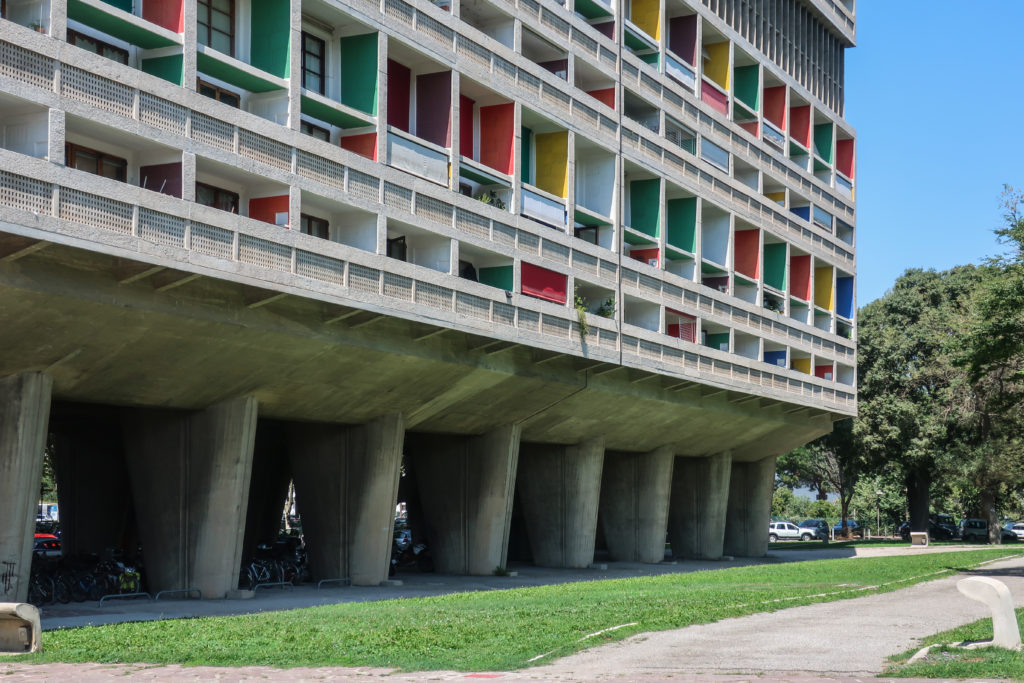
Unite d'Habitation Marseille Le Corbusier WikiArquitectura_013 WikiArquitectura
The Unité d'habitation de Marseille, the founding work of architectural Brutalism, is the major test of a new mode of housing based on the balance between the individual and the collective. The building takes the form of a housing bar 135 metres long, 24 metres wide, 56 metres high and mounted on stilts. Three hundred and thirty apartments.

AD Classics Unite d' Habitation / Le Corbusier ArchDaily
Unité d'Habitation, apartment house, Marseille, France, designed by Le Corbusier, 1946-52. Unité d'Habitation, 18-story residential block in Marseille, France, that expressed Le Corbusier 's ideal of urban family lodging. Completed in 1952, it is a vertical mixed-use community, with a shopping floor halfway up and other communal.

Le Corbusier Unité d'habitation, Typ Berlin Behance
At l'Unité d'habitation, the fire of 2012 destroyed a small part of the building. This has now been totally reconstructed to the original design, but with some reduction in authenticity. The authenticity of the existing Capitol Complex could be impacted if either or both of the governor's palace or the museum of knowledge were to be constructed, an eventuality that has apparently been.

FileUnité d'Habitation Typ Berlin & CorbusierHaus, Ostfassade.jpg Wikimedia Commons
3/5 Le Corbusier - perspective section, Unite d'habitation. Source: Fondation Le Corbusier. 4/5. Source: 5/5 L'Unité d'Habitation, Marseilles. Source: In the latest of the AJ's ongoing series looking at influential housing plans, Keith Williams chooses Le Corbusier's Unité d'Habitation in Marseilles.

Classici dC Unite d'Habitation / Le Corbusier Decor Design
The Unite d'Habitation in Marseille, France was the first large scale project for the famed architect, Le Corbusier. In 1947, Europe was still feeling the effects of the Second World War, when.
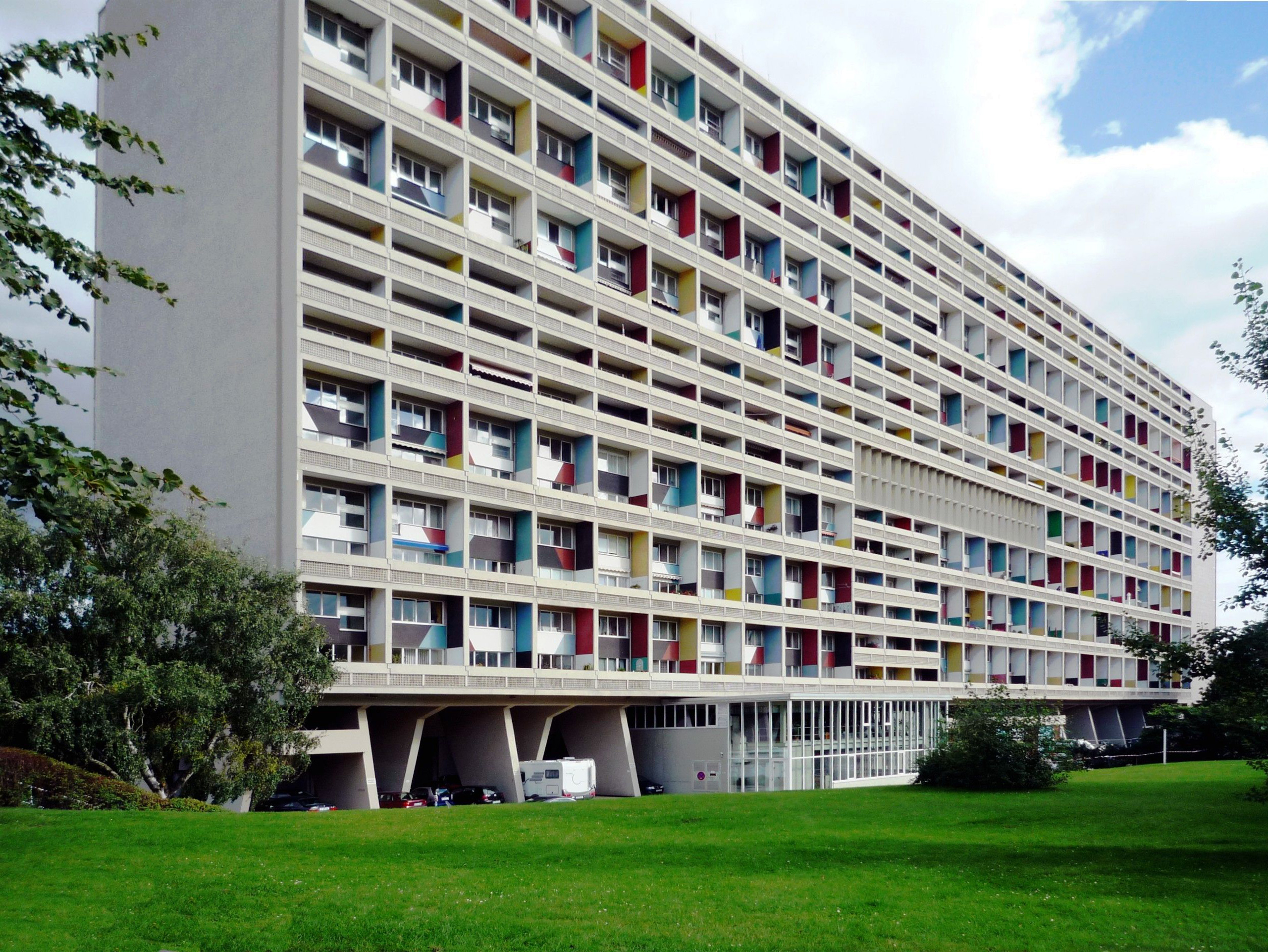
Unité d’Habitation de Nantes Le Corbusier WikiArquitectura
Unité d'habitation. L' unité d'habitation est le nom donné à un principe moderne de bâtiments d'habitation conçu par Le Corbusier, architecte franco-suisse (en collaboration avec le peintre et architecte portugais Nadir Afonso) qui a servi de modèle à plusieurs cités désignées par ce nom. La première de ces unités est celle de.
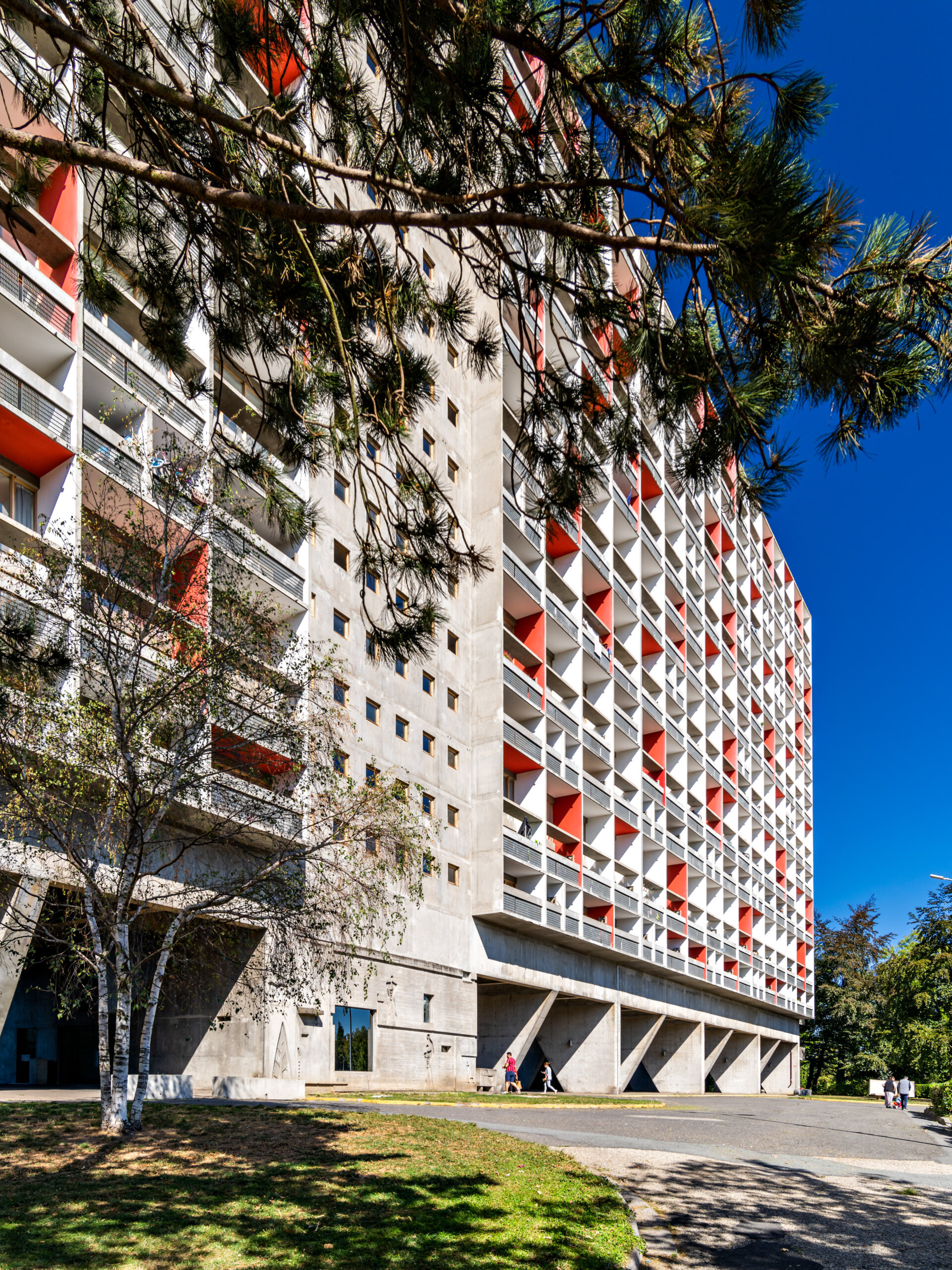
Unité d'Habitation Site Le Corbusier
Introduction The Unite d'habitation of Marseille, the first commission received by Le Corbusier from the French State, is one of his most iconic projects and one of the basic reference points for any architect. Planning was begun immediately after the Second World War (1945-1946) and construction began in 1951. The work, of an unprecedented magnitude […]
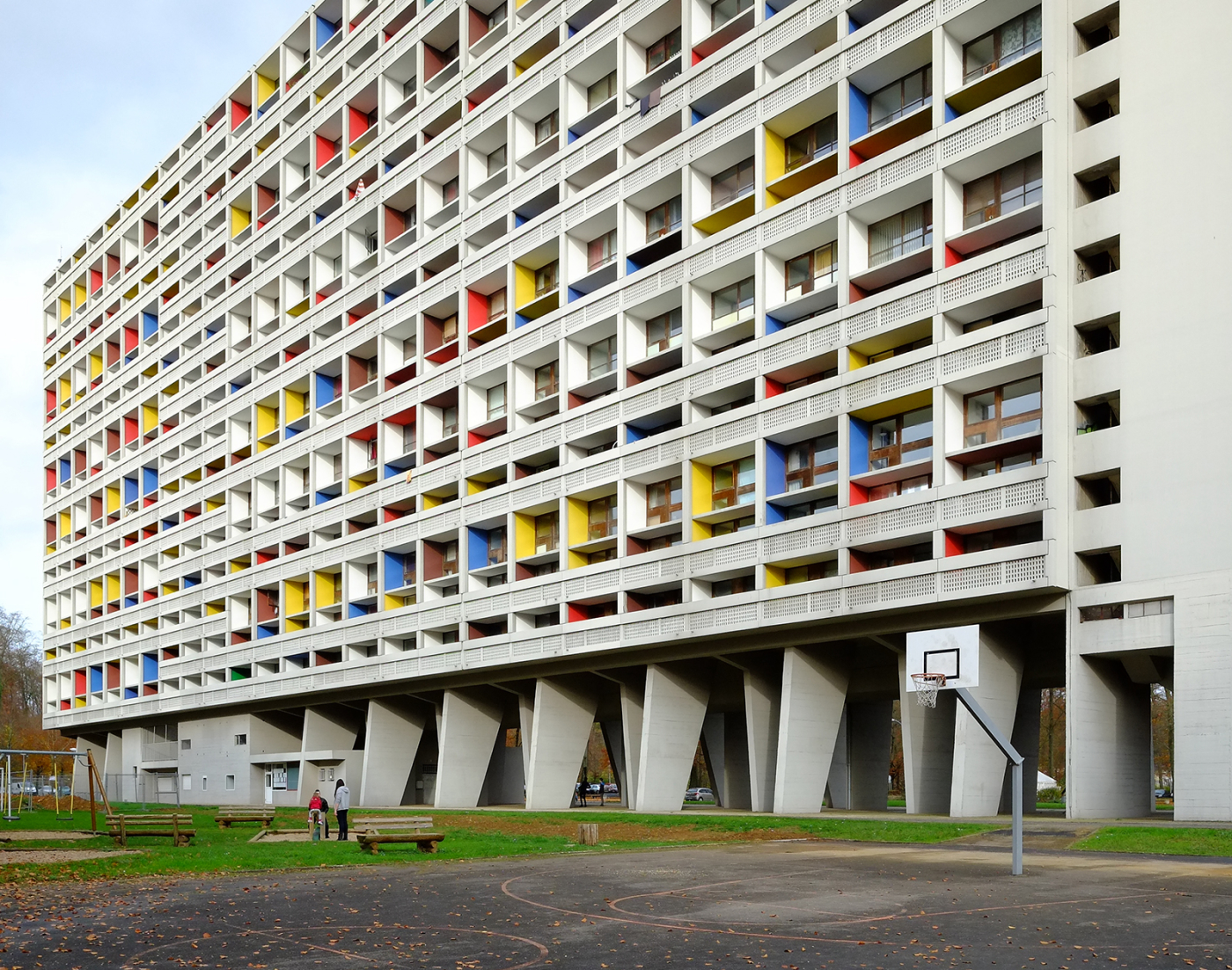
The Multiple Lives of the Unité d'habitation
Listed as a UNESCO World Heritage site, the 'Cité Radieuse' (radiant city) designed by Le Corbusier is an unmissable visit to be had with the Metropolitan Office of Tourism and Conventions. This 'unité d'habitation' (housing block unit) is indeed full of surprises. It is a real architectural concept playing with lights, perspectives.
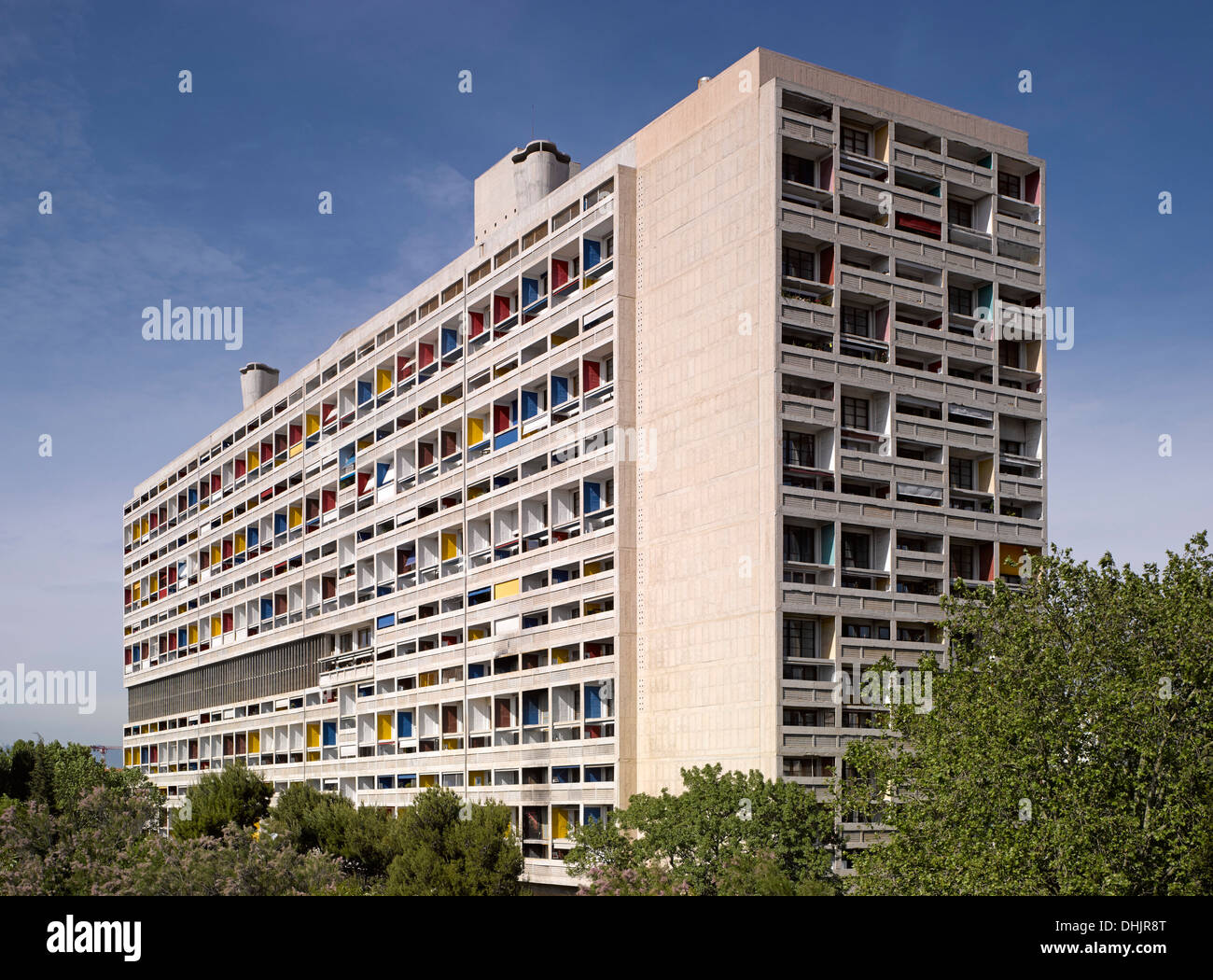
Unite d'habitation, Marseille, France. Architecte Le Corbusier, 1952. Vue extérieure globale
The 'Unité d'Habitation' was conceived by Le Corbusier as a « vertical city » which combines individual dwellings and collective amenities. It is still inhabited and currently has a population of about 900 people. Its construction started in 1965 and was completed after Le Corbusier's demise by one of his coworkers, André Wogenscky.

Unité d'Habitation, 1952, Marsella. Le Corbusier
Le Corbusier. 1 of 32. Rooftop, 1958. 68.media.tumblr.com. The Unite d'Habitation is the name of a modernist residential housing design principle developed by Le Corbusier, with the collaboration of painter-architect Nadir Afonso. The concept formed the basis of several housing developments designed by him throughout Europe with this name.
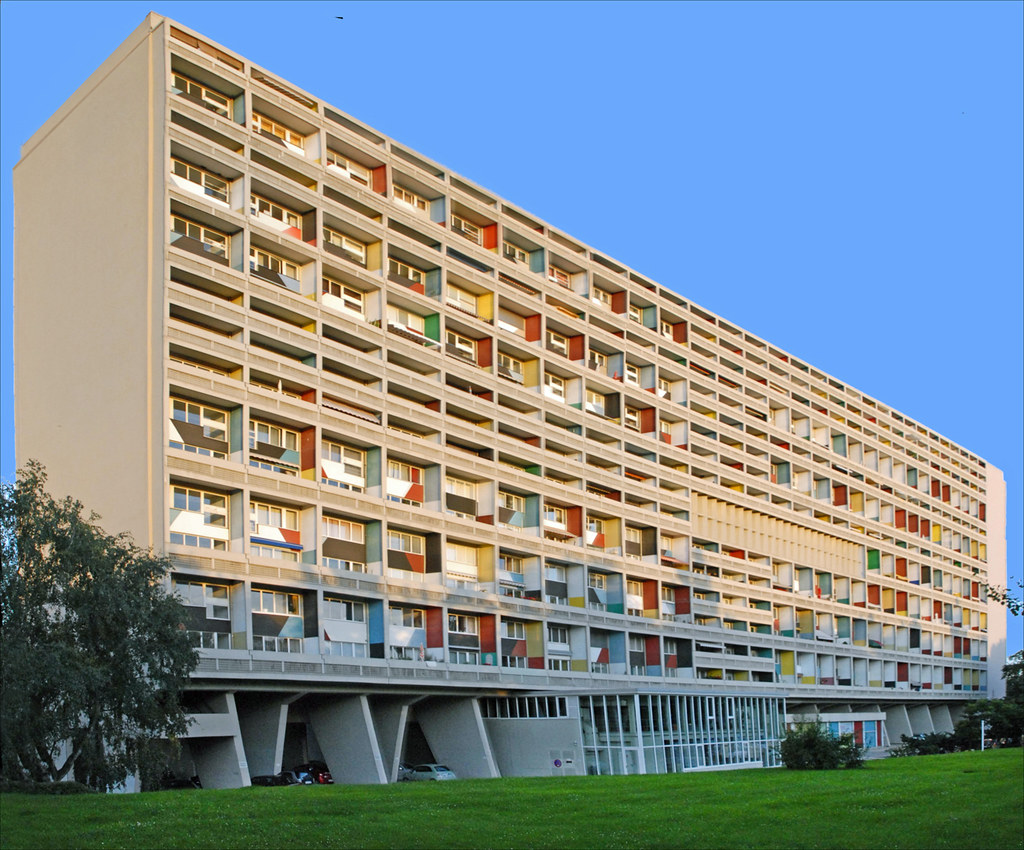
41 interesting photos of Unité d'Habitation, France Places BOOMSbeat
Explore the architectural genius of Le Corbusier through his iconic work, Unité d'Habitation in Marseille. Dive into its design philosophy, historical impact, and how it revolutionized modern urban living. This article delves into the building's innovative features, from functionality and efficiency to the concept of a vertical village, shedding light on its enduring legacy in the field of.
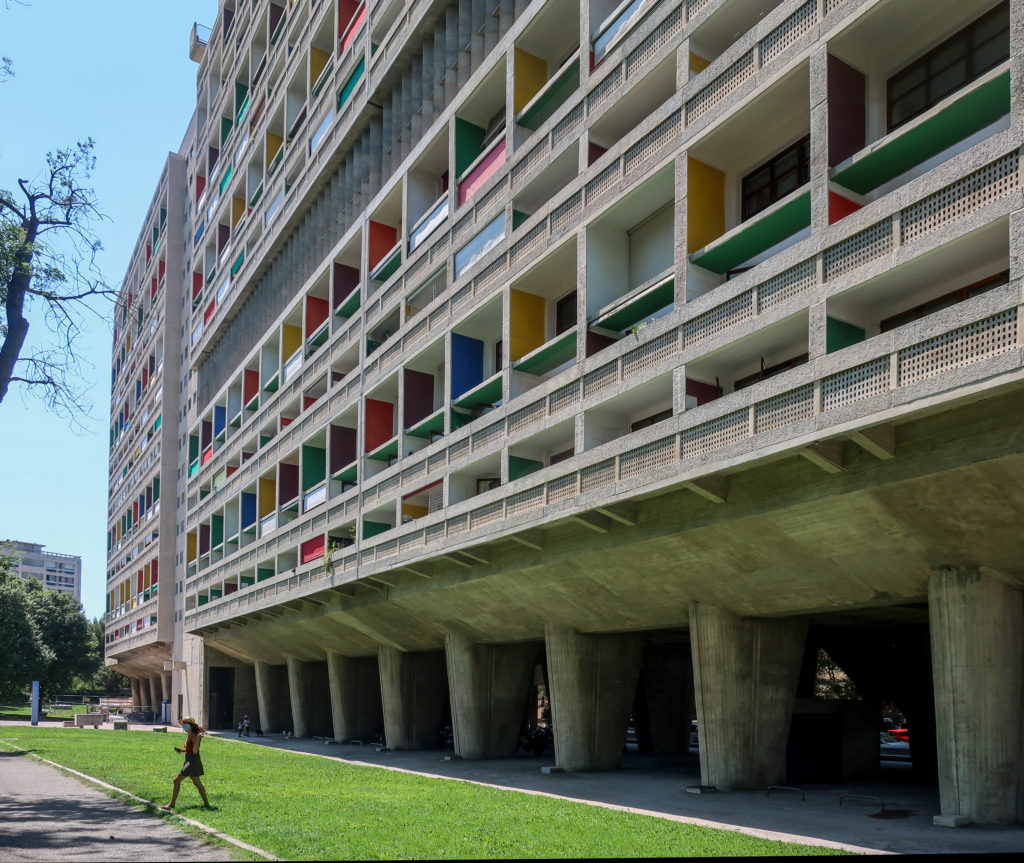
Unite d'Habitation Marseille Le Corbusier WikiArquitectura_014 WikiArquitectura
Brutalism: Le Corbusier 's first Unité d'Habitation is arguably the most influential Brutalist building of all time. With its human proportions, chunky pilotis and interior "streets", it.

Apartment in Le Corbusier's Unité d'Habitation Renovated to Original Design by Philipp Mohr
July 2, 2004. the Unité in Marseille (1945-1952) was a pioneering achievement at a time when social housing in the post WWII years posed an immense problem. Freed from restrictive regulations for the first time Le Corbusier was able to put into practice his concept of modern social housing. A milestone of modern architecture and subject of.
Façade detail of Unité d’Habitation Berlin, Germany (1958) by Le Corbusier ModernistArchitecture
Completed in 1952, the Unite d' Habitation was the first of a new housing project series for Le Corbusier that focused on communal living for all the inhabitants to shop, play, live, and come together in a "vertical garden city.". The Unite d'Habitation was a first, both for Le Corbusier and the ways in which to approach such a large.

Unité d’habitation Le Corbusier AEX
The Unité d'habitation ( French pronunciation: [ynite dabitasjɔ̃], Housing Unit) is a modernist residential housing typology developed by Le Corbusier, with the collaboration of painter-architect Nadir Afonso. It formed the basis of several housing developments throughout Europe designed by Le Corbusier and sharing the same name.

Architecture Classics Unite d' Habitation / Le Corbusier ArchDaily
The fourth building in the series is the Berlin Unite d' Habitation, also known as the Corbusierhaus. Completed in 1959, it was designed as a symbol for the modernization of Germany after the.